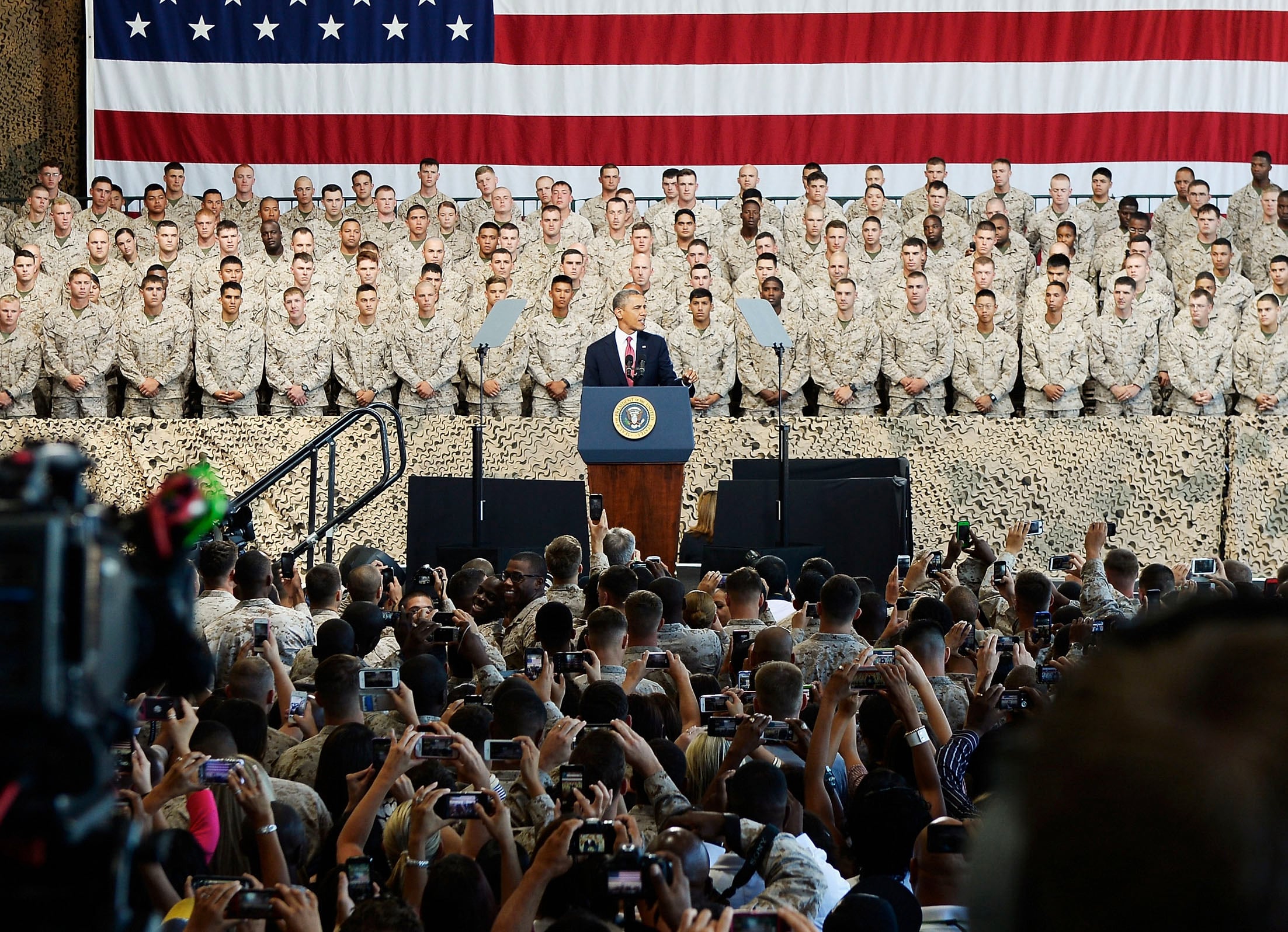President Obama on Thursday shunted aside speculation that he will soon expand the U.S. bombing campaign against Islamic extremists into Syria, saying the military mission for now will remain focused on Iraq.
"The options that I'm asking for from the Joint Chiefs focus primarily on making sure ISIL is not overrunning Iraq," Obama said at the White House on Thursday afternoon, referring to the Islamic State of Iraq and the Levant, also known as the Islamic State.
Obama said fighting ISIL in its stronghold inside Syria is a mission that the U.S. will expect partners — potentially including Muslim countries in the Middle East — to contribute to.
"In order for us to degrade ISIL over the long term, we are going to have to build a regional strategy. We are not going to do that alone. We are going to do that with partners," Obama said, adding that Secretary of State John Kerry will soon travel to the Middle East to forge a coalition.
Obama's comments came after widespread reporting that he has ordered manned and unmanned U.S. intelligence and surveillance aircraft to begin flying over Syria, a key step in developing new military options for targeting the ISIL militants beyond Iraq.
Last week, the chairman of the Joint Staff, Army Gen. Martin Dempsey, said that confronting Islamic State militants will ultimately require targeting their forces on the Syrian side of border. Dempsey also suggested that may involve partner nations rather than direct U.S. military action.
Pentagon spokesman Rear Adm. John Kirby would not comment on any intelligence missions over Syria, but said "we're not going to hold ourselves to geographic boundaries" in diffusing the threat posed by the Islamic State.
Experts say flying U.S. aircraft over Syria may be far more dangerous than the current sorties over Iraq. Last year, as the U.S. contemplated airstrikes against the Syrian regime of Bashar Assad, top U.S. military officials warned that Syrian air defense systems posed a substantial risk for U.S. aircraft.
Now, it appears unlikely that Assad's forces would fire on U.S. aircraft that might be targeting IS militants because Assad considers IS to be an enemy rebel faction.
But many experts inside and outside the military fear that IS militants may have seized some of the Syrian regime's anti-aircraft weaponry amid the chaos of the 3-year-old civil war.
Those fears intensified in late August when IS militants reportedly took control of the Tabqa airfield, a primary air base for the Syrian air force in the Euphrates River Valley where IS is consolidating its control.
A new report suggests factions of the Syrian civil war have up to eight models of Man-Portable Air Defense Systems, or MANPADS. Some of those models are "newer and more technologically sophisticated" than typical black-market MANPADS, according to the report from the Geneva-based Small Arms Survey.
"It's dangerous. There is the potential that one of those [U.S. aircraft] could be shot down," said Nora Bensahel, a defense expert at the Center for a New American Security, a think tank in Washington.
Intelligence about IS anti-aircraft capability in Syria remains murky.
"It's hard to know exactly who has what," Bensahel said.
"I don't think we're going to see a large bombing campaign on the Syrian side of the border developing any time soon," she said.
Any expansion of an air war into Syria may require new authorizations and a vote of approval from Congress. But Obama said he's not going to ask Capitol Hill for that right now.
"As our strategy develops, we will continue to consult with Congress and I do think it will be important for congress to weigh in … so that the American people are a part of the debate," Obama said.
"But I don't want to put a cart before the horse. We don't have a strategy yet."
Crisis in Iraq
Read all of our coverage of Iraq news here.
-----





